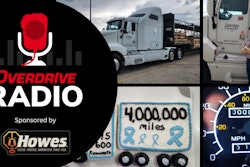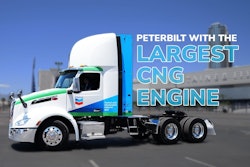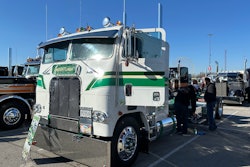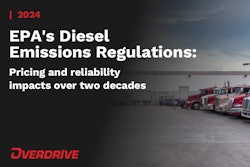Many fleet drivers think of owning a truck as a step up. But ownership can be a double-edged sword. Being successful – or not – depends upon how one handles the business of ownership. As Todd Spencer, vice president of the Owner-Operator Independent Drivers Association, puts it, “To be successful you have to be a businessman first and a truck driver second.”
There is a certain amount of freedom involved in ownership, but with freedom comes the daily, even hourly attention to the myriad of details the successful business owner is required to maintain. Deciding to become an owner-operator without understanding the responsibilities it entails is a surefire way to fail.
The most daunting aspect for many is coming up with a down payment. Many lending institutions are not partial to investments in rolling stock, and the situation gets worse if your credit history leaves something to be desired.
Financing through a dealer may be an option. But throw a bad credit rating into that mix, and your chances plummet there as well. For this reason, Todd Amen of American Truck Tax in Denver believes, “The lease-purchase rather than buying is a good entry-level strategy.” If you have the down payment for a new or used vehicle and your credit rating is good, owning is a definite possibility. But deciding to buy based upon the mere fact that you have a down payment and a good credit rating is like buying a horse by looking only at its teeth.
The difficulties of ownership or lease-purchasing are worsened by the current economic climate. Freight rates have been stagnant since deregulation made it possible for individuals to become motor carriers by getting an ICC number. Fuel prices fluctuate wildly, generally upward, and freight can be very slow in an uncertain economy. Buying a lot of chrome and horsepower may make you feel good, but is not necessarily the most sound business decision. Buying a used truck in a lease-purchase deal can be even riskier if you have not done your homework on the truck’s mechanical condition and all aspects of the agreement.
Like the owner-operator, the lease-operator may have to survive on very slim margins in the beginning. Every penny you save because you have a business plan well in advance of purchase – a business plan you stick to – will preserve the freedom you are buying with your sweat and money.
There are success stories out there, even considering the high cost of doing business and the tight financing market. Trucking has always been and will always be a cost and labor intensive business, as a glance at the profit margins of even the most successfully run companies will prove. Three or 4 percent profit margins are the rule rather than the exception. You will probably find that you take home a little less than the typical fleet driver in the same type of operation.





